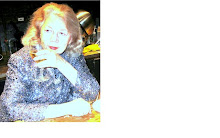Q&A With Philip Glass
|
Tell us about your Juilliard experience.
There was a very small composition department, and they had budgets for recordings, orchestra readings, and projects of all kinds. It was a school for very talented players, and the teachers were very inspiring. It was also living in New York, where at that time—and today for that matter—new music and all kinds of music was happening. The city itself was a highly energized place to be.
Juilliard was basically a trade school then. You went there to learn your trade, and you learned it. You had lots of practice at it, and lots of time to work at it. One very important thing that happened to me was being required to join the chorus for two years. Even though I played an orchestral instrument (flute), they weren’t going to put composers in the orchestra. During those two years with the choir director Abraham Kaplan, we did the Verdi Requiem, Beethoven and Mozart Masses, as well as contemporary music by Dallapiccola and William Schuman. I learned a lot about choruses. When I began writing my first operas, and when I was writing the choral music for Satyagraha [his 1979 opera], I had been out of Juilliard for years, but I used that experience.
Also, the Juilliard String Quartet was a young quartet then [premiering Elliott Carter’s String Quartet No. 2 in 1960]. Can you imagine what that sounded like [in the early ’60s]? People could hardly believe that they could play it! Stockhausen came to give a talk once to the composers at the Composer’s Forum. Martha Graham and José Limón were running programs there, so I began writing music for dance when I was at Juilliard and became a dance composer by the time I was 20. It was a very wide-awake, energized place. I suppose it’s not so different today.
Your work blends classical and popular cultures, now a regular practice in new compositions. What do you imagine is the “next step” in contemporary classical music?
The next step has already happened of course! The next step right now is that young players and composers in their 20s and 30s are assimilating contemporary technology and contemporary aesthetics along with traditional training. Groups like eighth blackbird and Alarm Will Sound draw on global music, popular music, and 20th-century art music. They are anti-ideological and easily cross between popular, global, and art music. They owe no favors to older people at all, so they don’t have to sound like anybody they don’t want to be. So today when someone says, “I’m a composer,” you have no idea what they are writing—not until you listen to it. You don’t have a clue! It can come from any point in 360 degrees, and that is really interesting. The next thing is happening right now. It’s all around us.
What kept you going when you were driving a cab and having a moving company in New York before your career really took off?
I took day jobs, as everyone did. Poets, painters, playwrights, musicians, actors. We all had a day job, and I made sure it was one I could walk away from at any time. I didn’t even try to make a living in the real world. I took totally marginal jobs that freed me to go on tours when I needed to. I never had a job where there was job security because I wanted job insecurity—so that the only thing I was really secure of was that I wanted to write music and that I wanted to play music. That’s what I knew, and how I made a living was not so important. It’s hard to work in that marginal way, but you pick up skills and trades along the way, and at a certain point, with luck, you find that you can make more money staying home writing music than moving furniture.
After being so successful in so many genres—concert music, ballet, opera, film—is there another type of project you see yourself taking on in the near future?
I would say generally we are talking about an area of collaboration that could be with poets, with dancers, with playwrights, with filmmakers, with video people. I think of it as an ongoing process of sharing aesthetic and artistic ideals with people of like mind. And that’s why I’ve gotten into all this stuff. It became a way that stimulated change in my own music and a way that kept me abreast of what other people were doing. It had social, aesthetic, and even economic benefits. I didn’t stay home and just write music by myself. I wrote music and took it to the dance studio or to the film studio. I took it to where my collaborators were. Because it’s so open in that way, I think that not having borders is very important. It was for me.
—Interview
conducted by Toni Marie Marchioni, who will receive her D.M.A. in oboe
this month, is a fellow of the Academy, a training program run by
Carnegie Hall, Juilliard, and the Weill Music Institute



No comments:
Post a Comment